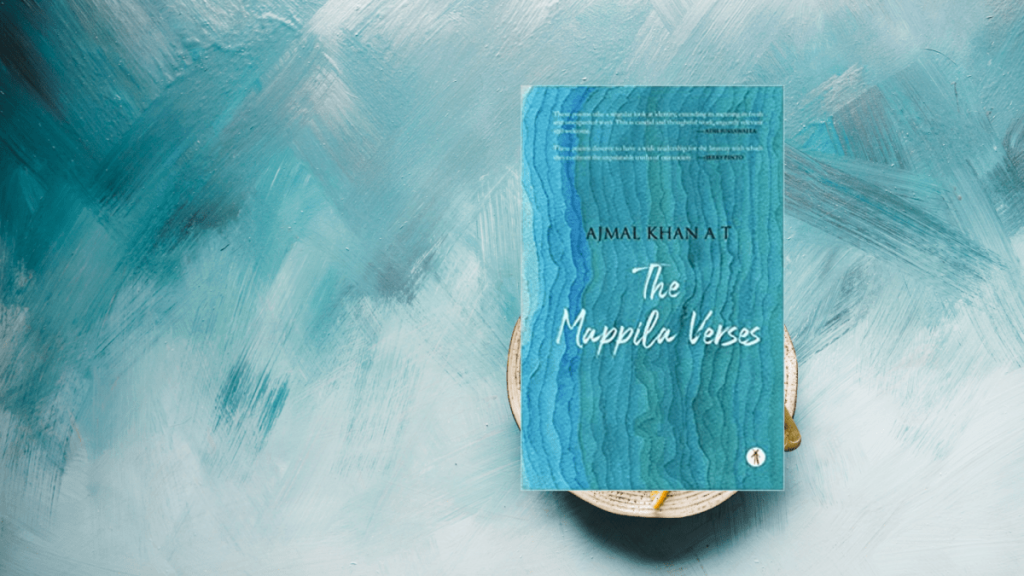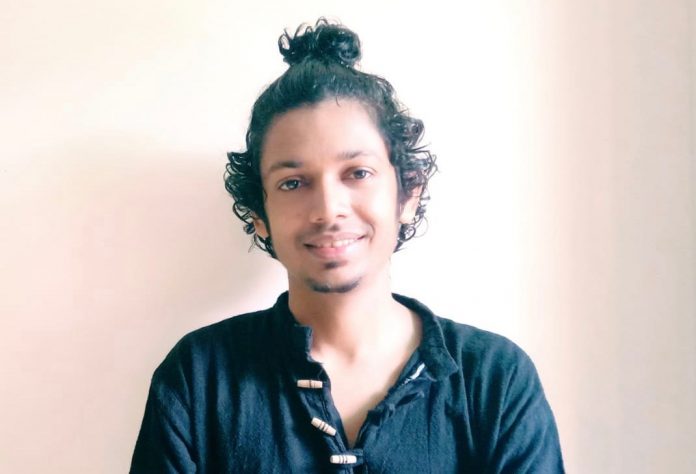Ajmal Khan is a poet from Kerala whose new collection of poems called The Mappila Verses marks the identity of resistance and poetic assertion and a breakthrough in English poetry written in India. This is the story of his journey from a dreamy teenager to a published poet.
Suprakash Majumdar, TwoCircles.net
New Delhi: “The nature of Indian English writing is changing from a marginalized perspective. It is a small change but it’s a good change,” says Ajmal Khan, a Kerala based poet.
Khan, 31, is the author of The Mappila Verses, a collection of poems that as per its blurb takes the reader to a different experience and marks it as a breakthrough in English poetry written in India.
Ajmal dubs the publication marking the identity of resistance and poetic assertion.
Ajmal comes from an economically weak family, with low income and literacy levels. His father was a tailor and Ajmal would help him out at the shop after school.
Ajmal told TwoCircles.net that he never thought of becoming a writer when he was younger and didn’t even know that it was possible. Till 10th standard, he was an average student.
“I was also shocked that I cleared 10th standard with a bare minimum,” he laughs. “That was the turning point for me.”
When he passed the 12th standard, he joined Calicut University in 2007 for Bachelors in English Literature. Recalling the time at Calicut University, he says, “The teaching system was so different back in Calicut that we used to read classic English literature like Shakespeare in Malayalam.”
Very few people in his college were fluent in English and therefore couldn’t understand literature written in English.

In college, Ajmal caught his flair for writing. He used to write short stories and poems in Malayalam. He also started to write a few articles in some small magazines in the region. “My work was noticed in places like Kerala, Bengal and in places where the Bahujan movement is strong, where you will find the culture of these small magazines and publications,” he said.
The magazines where Ajmal’s work appeared would give space to many marginalized writers.
Ajmal had now found a place to publish his work in such magazines and that’s how his writing journey started.
After completing his bachelor’s, Ajmal knew that he had to get out of his hometown to get a proper education. Fond of travelling and exploring new places & culture, he noticed that many people from his hometown were going to different places to get an education. However, given his family’s weak economic strength, this seemed like a farfetched reality for him. Facing this, Ajmal started looking for any opportunity that would lower his expenditure.
“I was only looking for opportunities to get out of my hometown and higher education was only my secondary concern. I should note that where I am from, women would never get such an opportunity that I got. If I was a woman, I would have probably been married off and would be taking care of my children instead of writing,” Ajmal says.
He finally decided to join the Tata Institute of Social Sciences (TISS) in Mumbai. He thought this was a viable option for him given that TISS had fee waivers for SC/ST/OBC students. This was also when he started to write in English.
Ajmal experienced first-hand the socioeconomic marginalization of Muslims and Dalits after arriving in TISS. “It was a cultural shock for me,” he says.
Back home, Ajmal had read about this but now witnessed clear parallels for the first time. “With a history of communal mobilization and riots in Mumbai, it’s obvious to see this,” he says.
He started actively participating in-campus and off-campus events and observing politics.
Marathi Dalit Sahitya Sammelan could be seen all across Maharashtra.
Ajmal started to observe the politics of caste in Marathi Literature, where the language and Dalit articulation in Marathi literature could see anti-caste histories. He wanted to understand who these writers are, and how they tone their craft and caste. “I could not read Namdeo Dhasal in Marathi, but I read translations and I was shaken by his work,” says Ajmal.
“Most of the poems I wrote in Mappila Verses were written during my time in TISS. I have written 2 books of poetry before the Mappila Verses.”
It was around this time that Ajmal started reading English literature, which wasn’t required for his course. He was interested in writing poetry, but he decided not to write in Malayalam, because English could make his voice reach a large audience. He struggled to write in English. In college, he saw only people from metropolitans spoke really good English and their articulation was nuanced, which was not the case for him. “That’s when I understood the dynamics of English and why I thought it was important for Bahujans to grasp the language, much before Kancha Illaiah talked of the same politics of English,” he says.
Ajmal comments on how the Muslim population in India generally ignores what women have to offer. “Muslims in this country have not paid attention to their history. For instance, take the case of Fatima Sheikh, who shaped the education of women in this country, barely finds a credible record of her work and contributions,” he says.
Most of Ajmal’s work traverses his deeply personal experiences as an Indian Muslim. He writes about his experiences travelling in Delhi Metro, the streets of Mumbai or New York, or what his mother, an Indian Muslim woman, has to say about CAA and NRC.
He wishes to be an activist and a writer.
“English writing is dominated mostly by upper-caste Hindu men, who were introduced to the language because of university systems and privilege of occupying spaces. English language and literature are now being occupied by Bahujan communities, and it’s not a large change, but a small one with huge impact,” he says.
“I wrote a poem in Arabic, which is something that most people do not identify with because of negative connotations associated with the language,” he says about his poem on the language politics of Arabic, adding, “I worked on the book during the lockdown and I did not think it would be read at all. Surprisingly, it became a best-seller on Amazon.”
Ajmal’s poem “Write me down, I am an Indian”, which he wrote in response to the CAA-NRC protests was widely read on social media. Ajmal says the poem was written in the vein of Palestinian national poet Mahmoud Darwish’s celebrated poem “Write me down, I am an Arab.” The poem received much acclaim and has been translated into many regional languages, including into Hindi by lyricist Varun Grover.


